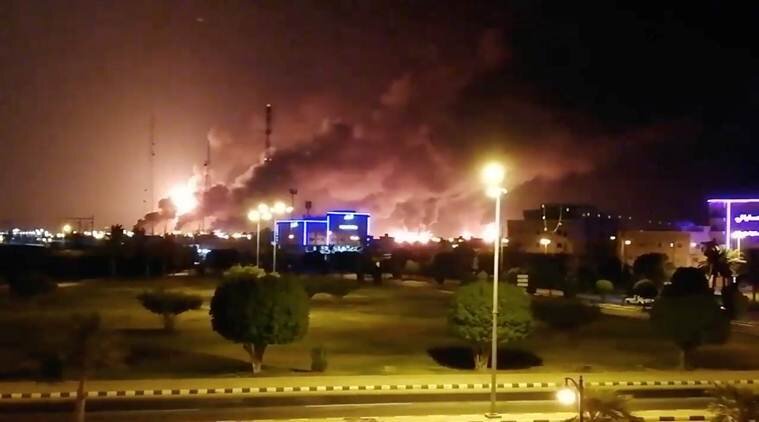Drone strikes disrupt almost half of Saudi oil capacity

Drone attacks claimed by Yemen’s armed forces struck two key oil installations inside Saudi Arabia on Saturday, damaging facilities that process the vast majority of the country’s crude output and raising the risk of a disruption in world oil supplies.
Reuters and The Wall Street Journal report that about half of the country's oil production has been disrupted, or 5 million barrels a day.
Saudi Arabia produces approximately one-tenth of the world's crude oil.
Saudi Interior Ministry confirmed the strikes on the oil-processing facility in Abqaiq and an oil field in Khurais, both owned by state-owned Saudi Aramco. Abqaiq is about 230 miles away from the Saudi capital of Riyadh, and the field in Khurais is 100 miles away.
According to Aramco's website, the facility in Abqaiq is both the company's largest oil processing facility and the largest crude oil stabilization plant in the world, playing a "pivotal role" in the company's operations.
Bob Tippee, editor of the trade publication Oil and Gas Journal, said that the facility in Abqaiq held light crude oil as opposed to heavy crude oil, which requires more intense refining to remove sulfur and other impurities. He said that factories that are built to refine only light crude oil may not be able to find another crude exporter to fill the gap during the disruption.
"If the light crude that's been disrupted cannot be replaced with light crude of similar grade and similar quality immediately, which it probably cannot, there will be some problems in the market," Tippee said.
The attack also throws into question a rumored initial public offering of 5% of Aramco's stock, for which the company had hired nine banks, including JPMorgan Chase & Co and Morgan Stanley, Reuters reported. Tippee said the offering, which is expected to raise $100 billion, is part of Crown Prince Mohammed Bin Salman's Vision 2030 plan to reduce the kingdom's dependence on the price of crude oil.
An Aramco statement said production of 5.7 million barrels of crude was suspended by the attack from “projectiles.” That represents more than half of the kingdom’s output and about 6 percent of global oil supply — a shortfall that could send oil prices sharply higher.
The Aramco statement did not give any timetable on how long the production could be curtailed. In Washington, the Department of Energy said that the United States was prepared to tap U.S. emergency oil reserves if necessary to cover supply disruptions.
"Abqaiq is perhaps the most critical facility in the world for oil supply. Oil prices will jump on this attack," Jason Bordoff, founding director of the Center on Global Energy Policy at Columbia University, said in a statement.
If the disruption in Saudi Arabia is prolonged, "sanctioned Iran supplies are another source of potential additional oil," Bordoff said. "But [U.S. President Donald] Trump has already shown he is willing to pursue a maximum pressure campaign even when oil prices spike. If anything, the risk of tit-for-tat regional escalation that pushes oil prices even higher has gone up significantly."
(Source: agencies)
